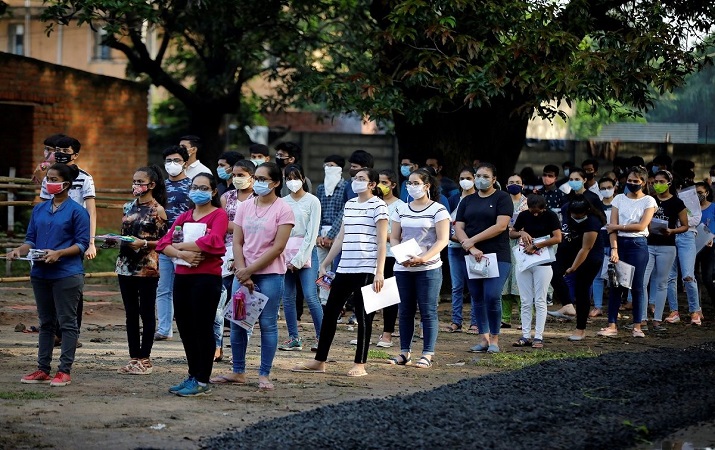The University Grants Commission (UGC) has declared recommendations for the reopening of universities and colleges closed since March because of the pandemic, following a six-day timetable, decreasing the class size, setting up isolation facilities on campus, and COVID-19 screening of students, faculty and employees. The decision to reopen the campuses is given to the Vice Chancellors and Heads of Central Universities and other centrally funded higher education institutions.
Nevertheless, the respective state governments would have to take a call for state universities and colleges, the guidelines stated, “In order to avoid the risk of transmission, students, faculty and staff should be screened and symptomatic ones recommended to be clinically tested before they can enter the campus.”
“Isolation facilities for symptomatic persons and quarantine facilities for persons in touch with positively tested persons should be on campus, or connections can be made in advance with certain government hospitals or approved premises or as recommended by local authorities, so that timely action may be taken if appropriate. “For those in quarantine and isolation facilities, adequate arrangements for protection, health, food and water should be ensured,” the UGC said. The Commission has recommended that in compliance with the requirements of the institution, the teaching hours per day be extended.
The six-day plan should be followed so that classes can be held in phases and the arrangement of the seating can be made given the physical distance requirements, “it said.
Universities and colleges are asked to schedule the opening of campuses in a phased manner, with practices that comply with COVID-19 requirements, including social distancing, the use of face masks and other protections. “Only if they are outside the containment zones are universities and colleges permitted to open. Besides, students and workers living in containment zones would not be allowed to attend colleges. Students and staff should also be advised not to enter areas within containment zones. The ‘Aarogya Setu App’ should be installed by the faculty, staff and students of the university and college.”
“Students from all research programmes and postgraduate students in science and technology programmes may enter as the number of such students is comparatively smaller and it is easy to implement standards of physical distancing and preventive steps. Students may also be permitted to join the final year for academic and placement purposes, as per the institution’s head’s decision,” it added.
The Commission has confirmed that institutions should have a plan ready for foreign students who, due to international travel limitations or visa-related problems, are unable to join the programme. “Only in such situations should hostels be opened where appropriate while strictly following safety precautions for health and wellbeing. However, in hostels, the sharing of rooms should not be permitted. Under any circumstances, symptomatic students should not be allowed to stay in hostels,” it said. In order to avoid the spread of coronavirus, universities across the country were closed on March 16. On March 25, a nationwide lockdown was declared.
Courtesy: HIGHER EDUCATION Review
Follow us on Facebook, Twitter, LinkedIn.
